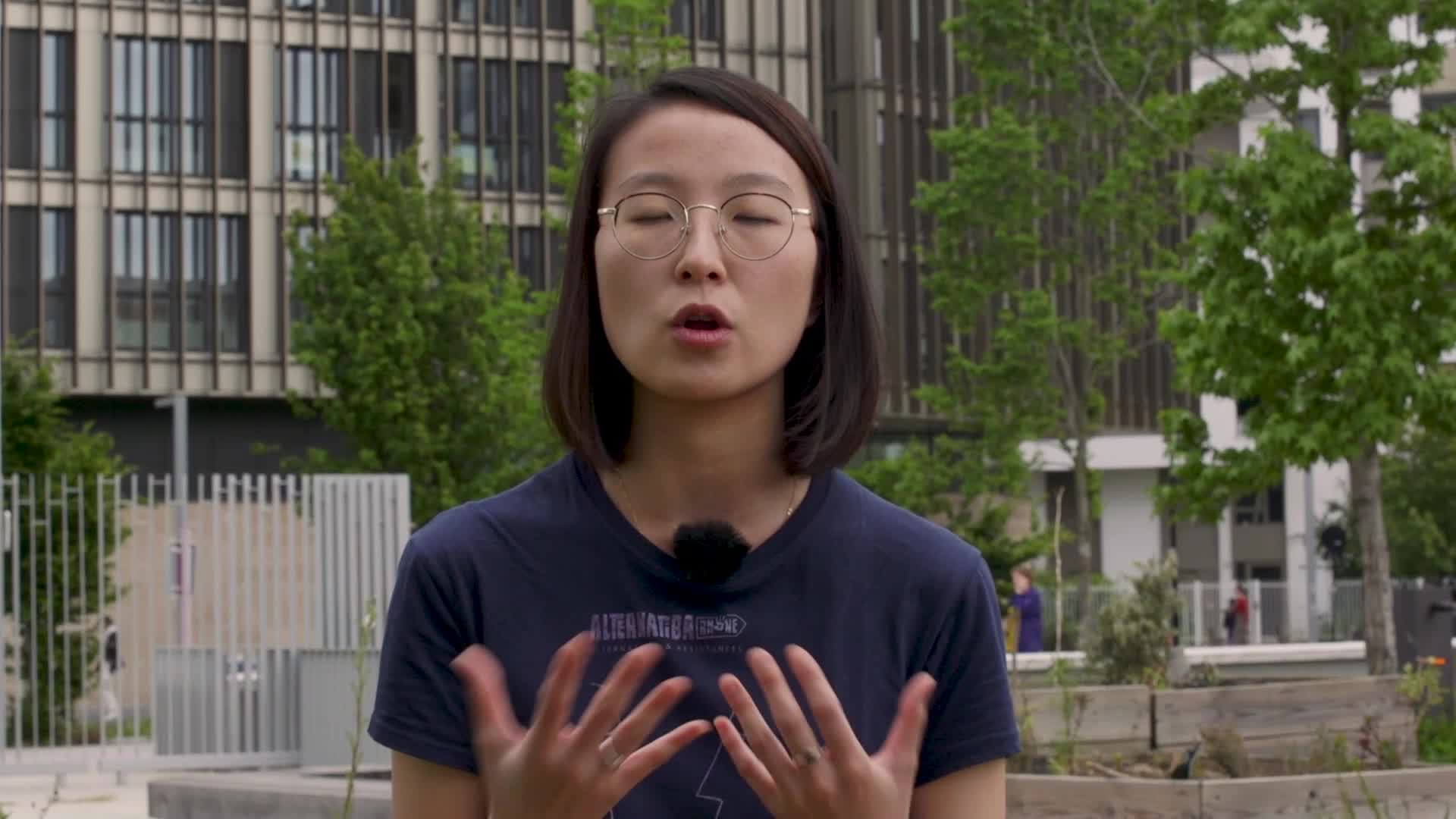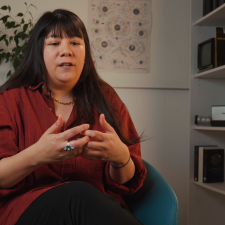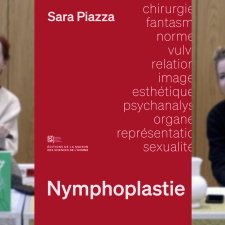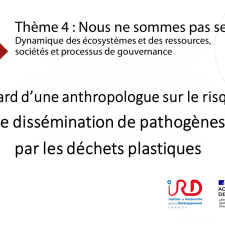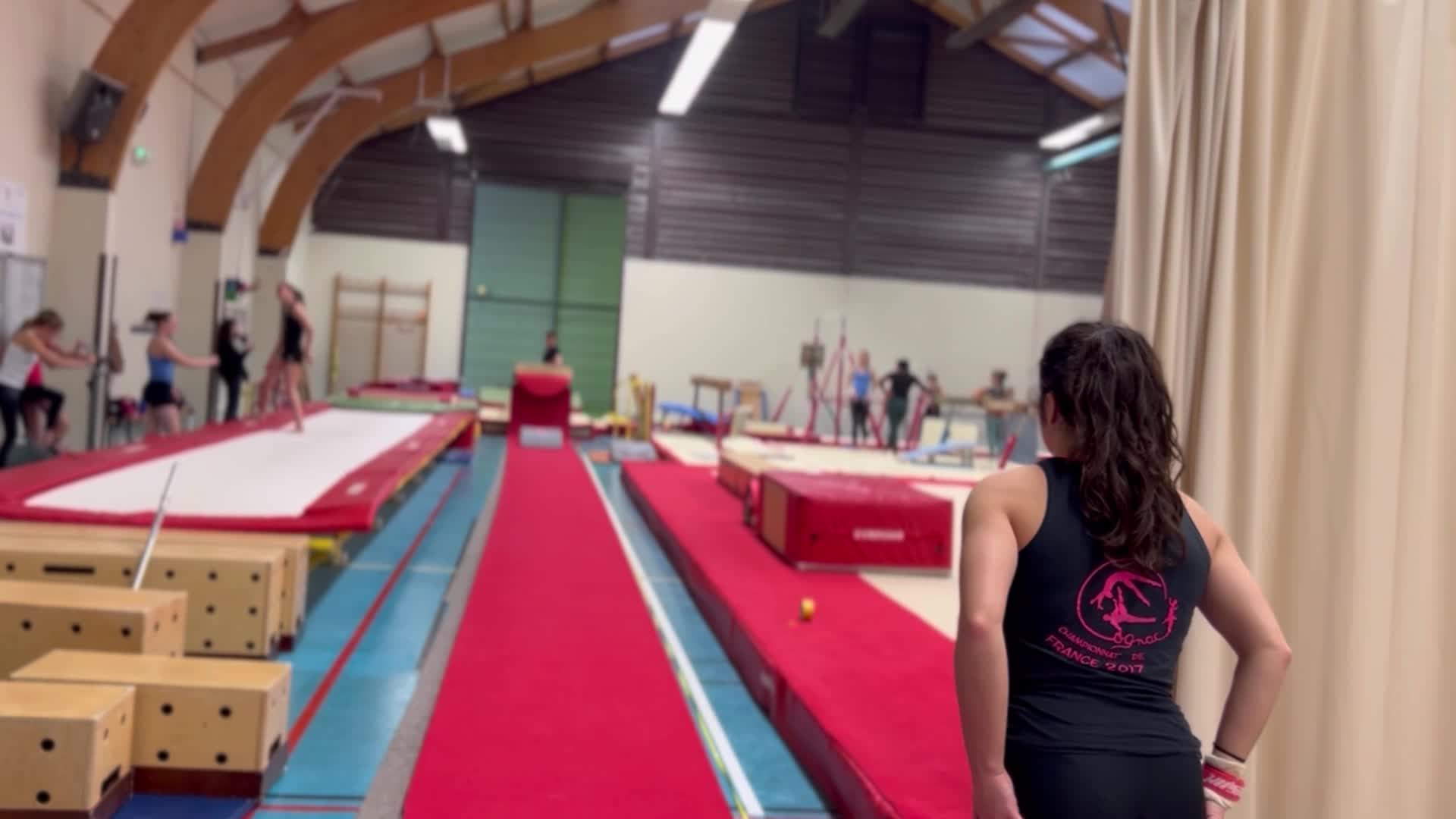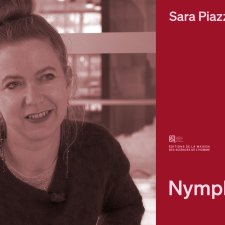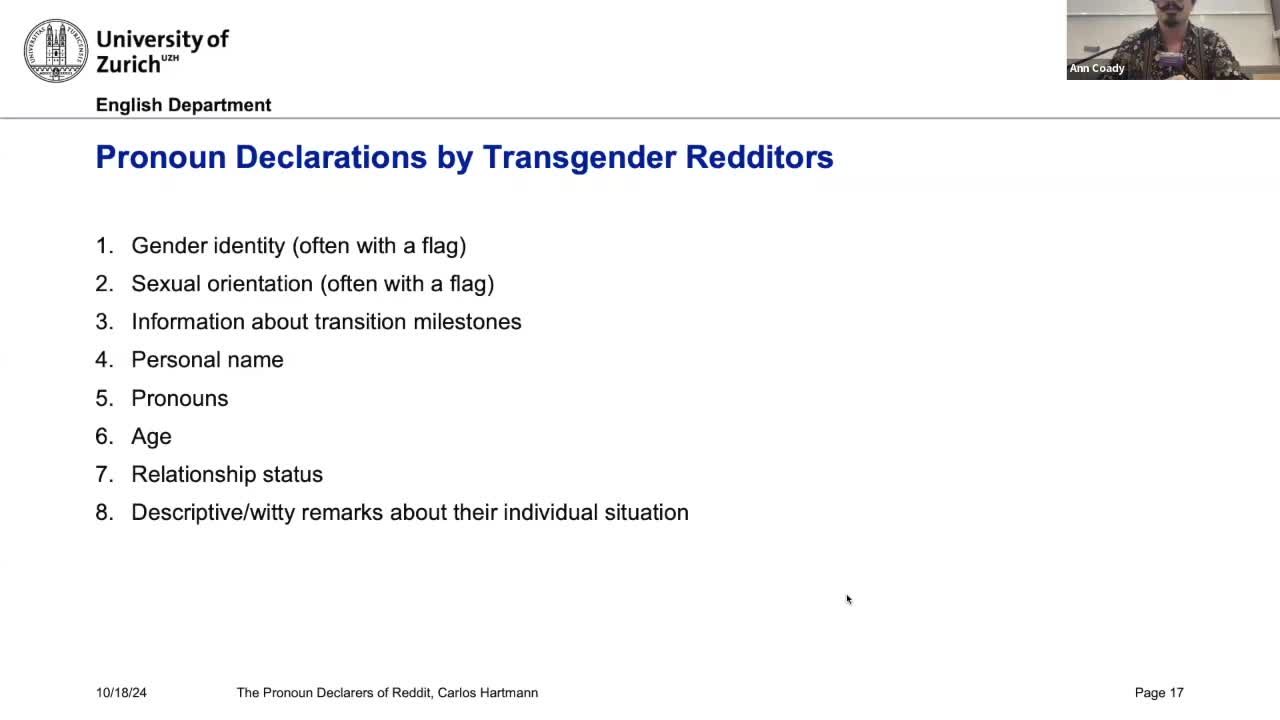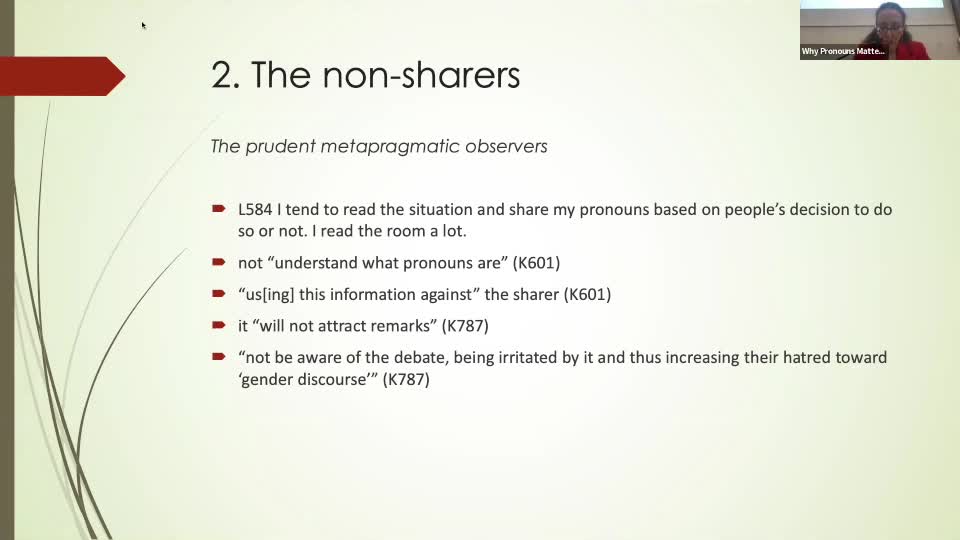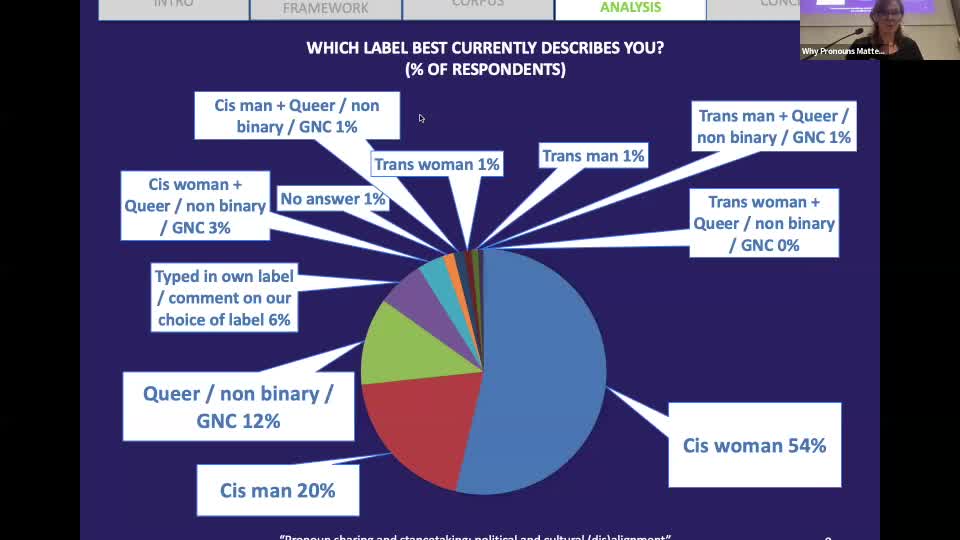Notice
Rencontre avec Julia Roux
- document 1 document 2 document 3
- niveau 1 niveau 2 niveau 3
Descriptif
Étudiante de la promotion 2022-2024 de la mention Études sur le genre de L’École Universitaire de Recherche (E U R) Gender and Sexuality Studies (GSST) (EHESS/INED), Julia Roux nous parle de son parcours avant et pendant le master et donne quelques conseils aux futur·es candidat·es du master.
Intervention / Responsable scientifique
Thème
Documentation
Dans la même collection
-
Rencontre avec Soraya Jean-Louis
Jean-LouisSorayaDiplômée en 2022 du master mention Études sur le genre et lauréate du Prix d’Accompagnement à l’Insertion Professionnelle de l’EUR GSST (EHESS/INED).
-
Rencontre avec Shuyi Liu
LiuShuyiDiplômée en 2022 du master mention Études sur le genre et lauréate du Prix d’Accompagnement à l’Insertion Professionnelle de l’EUR GSST (EHESS/INED)
-
Rencontre avec Eva Maginot
MaginotÉvaDiplômée en 2019 du master mention Sociologie, spécialité Genre, Politique, Sexualité (précurseur du master mention Études sur le genre).
Sur le même thème
-
Face à l'injonction participative, Séminaire AFA, 17.03.2025
Présentation du numéro 178-179 du Journal des anthropologues
-
Journée d’étude I Les lucioles : art, culture et espoir dans les périphéries urbaines de Rio et de …
Capanema P. De AlmeidaSílviaFacinaAdrianaBirmanPatríciaMerklenDenisCarneiroSandra de SáDans nos paysages urbains généralisés, nous cherchons les lucioles. En leur absence, les collectifs culturels sont capables de rallumer les étoiles, comme dans les vers d’Apollinaire. Autrement dit,
-
Entretien avec Ariane Mak autour de son ouvrage En guerre et en grève. Enquêtes dans les cités mini…
MakArianeDe 1939 à 1945, le Royaume-Uni a connu plus de 7 000 grèves, en grande partie dans l’industrie charbonnière.
-
An Anthropologist looks at Architecture
IngoldTimAn Anthropologist looks at Architecture : Conférence du 8 avril 2025 dans le cadre du cycle les leçons du mardi "Ecoles plurielles" proposé par Grégoire Deberdt, Iris Lacoudre et Camille Sineau
-
Soirée de présentation de l'ouvrage "Nymphoplastie"
PiazzaSaraMazauretteMaïaPrésentation de l'ouvrage "Nymphoplastie", de Sara Piazza, présenté par Maïa Mazaurette
-
Prendre position dans le trouble / Carnet de passages #2
CourdurièsJérômePitzalisJuliaPeyrautLolaMontécotRobinPayssanAlexiComment s’empare-t-on d’une toute nouvelle thématique ? Comment traiter d’un sujet d’actualité mais surtout polémique ? L’expérience de l’anthropologue Jérôme Courduriès s’est construite au travers
-
Regard d’une anthropologue sur le risque de dissémination de pathogènes par les déchets plastiques
FacheÉlodieÉlodie FACHE présente le projet VECTOPLASTIC sur le risque de transmission de bactéries pathogènes des microplastiques marins vers les animaux qui les ingèrent , puis vers les humains qui consomment
-
Les techniques du corps en gymnastique artistique
Portrait d'une jeune gymnaste en apprentissage depuis ses 4 ans. On le retrouve dans le gymnase de la Vallée Violette à Joué-les-Tours.
-
Nymphoplastie. Coupez ce sexe que je ne saurais voir
PiazzaSaraInterview de Sara Piazza, dans le cadre de la sortie de son ouvrage "Nymphoplastie. Coupez ce sexe que je ne saurais voir"
-
“A sociolinguistic case study on the Pronoun Declarers of Reddit”, Carlos Hartmann, Universität Zür…
For this study, I extracted and analyzed Reddit comments featuring pronoun declarations within their user flairs, the optional descriptors displayed alongside usernames. The goal was to identify a
-
“What’s in a pronoun and how does it matter?: From the perspective of pragmatics”, Sandrine Sorlin,…
SorlinSandrineIn this talk, I wish to give a quick overview of the quite recent ‘pronoun sharing’ trend from a linguistic and pragmatic perspective, going through the new collocations and semantic shifts of the
-
“Pronoun sharing and stancetaking: political and cultural (dis)alignment”, Ann Coady, Université Pa…
I begin my presentation by putting current pronoun-sharing practices in political and theoretical context, briefly discussing the current political debate surrounding these practices and comparing



